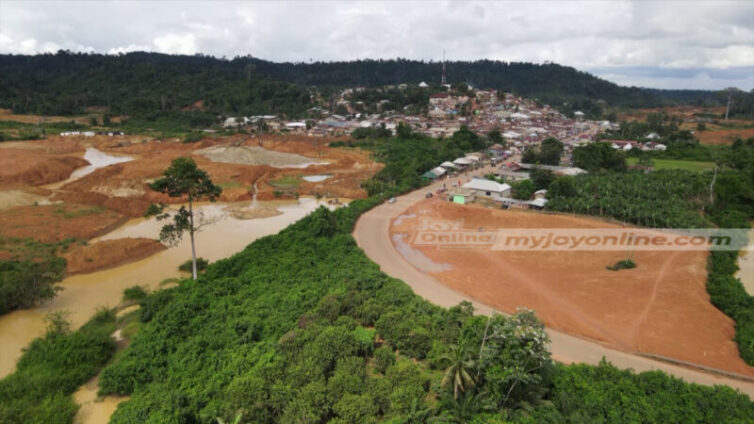Ghana has recorded the most severe decline in environmental sustainability across Africa over the past decade, according to the 2024 Ibrahim Index of African Governance (IIAG) report.
The report, which assesses governance performance across African countries on a ten-year scale, ranks countries based on their scores out of 100, with a focus on both the direction and pace of governance changes.
The Sustainable Environment sub-category, which measures factors such as Environmental Policy Enforcement, Air Quality, Sustainable Use of Land & Forests, and Biodiversity Protection, revealed significant drops in Ghana’s performance.
In 2014, Ghana scored 41.9 on sustainable land and forest use, a figure that has since dropped to 37.6—indicating a 4.3-point decline.
Land and water biodiversity protection showed an even steeper drop from 37 points in 2014 to 24 points in 2023, marking a 12.1-point decrease.

An additional indicator, Absence of Illegal Exploitation of Biodiversity, revealed a concerning decline in Ghana’s score, from 61.5 in 2014 to 25.0 in 2023—a 59.35% reduction over the decade.
“The country’s worst-ranked indicators are Sustainable Use of Land & Forests (50th) and Land & Water Biodiversity Protection (44th), leading Ghana to register the largest decline in the Sustainable Environment sub-category across the continent (-2.5 points),” the report stated.

Currently, Ghana ranks 39th out of 54 African countries in sustainable environment, with a score of -2.5 points, in stark contrast to neighboring Togo, which ranks 12th with a leading score of 20 points on the continent.

This report was published amid rising public concerns over the detrimental effects of illegal mining, or “galamsey,” on Ghana’s natural resources.
Polluted rivers, deforestation, and loss of potable water have prompted youth groups, media, labour unions, and religious organisations to rally against illegal mining activities.
Demonstrations have taken place in Accra, calling on the government to take stronger action, and labor unions have held strikes to amplify these demands.
In response, the government has deployed military and police forces to illegal mining sites, seizing equipment and arresting offenders.
Read also: Emotional vigil climaxes 3-day anti-galamsey protest as demand to #FreeTheCitizens intensifies
Parliament is also expected to address demands from recent protests to repeal the Environmental Protection (Mining in Forest Reserves) Regulation 2022 (L.I. 2462).
Ghana’s declining rank and low scores underscore the urgent need for decisive actions to tackle the illegal mining crisis and restore the nation’s environmental sustainability.
Meanwhile, President Akufo-Addo has reaffirmed his commitment to end the menace.
Latest Stories
-
AngloGold Ashanti sets stage for 42 sustainable youth entrepreneurs to set up their businesses
11 minutes -
GMet warns of dangerous sea swells from Friday to Sunday; coastal residents urged to stay alert
18 minutes -
Chamber of Aquaculture and ASC join forces to strengthen Ghana’s farmed seafood sector
19 minutes -
The Multimedia Group treats staff to exciting hangout lunch with live music
29 minutes -
Stray bullet kills Nkwanta SHS student in Oti Region
1 hour -
West Africa leads way in regenerative agriculture: Rainforest Alliance 2024 report highlights regional and global impact
1 hour -
ASEC urges swift measures to shield Ghanaians from fuel price shocks amid Israel-Iran conflict
1 hour -
UNDP and Ghana’s NIC spotlight young innovators in drive for inclusive insurance
1 hour -
Ghana adopts Abrahamic ethical banking model
2 hours -
AMA sanitation court convicts food vendor in landmark case as by-law enforcement intensifies
2 hours -
Speaker of Parliament calls for parliamentary debate on 24-hour economy policy
2 hours -
Minority demands Mahama’s response to suspended Chief Justice’s concerns
2 hours -
Elikplim Akurugu pledges support for education at Ga East conference
2 hours -
‘I’m fed up with politics in Ghana’- Speaker Bagbin
2 hours -
Useless Column: ‘Armpit Powers’
2 hours

